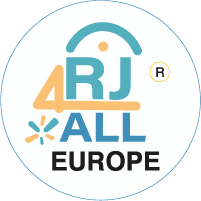The terms:
- Radicalisation and violent radicalisation
- Extremism and violent extremism
- Religious fundamentalism, and
- Terrorism
are frequently used interchangeably. However, they are very different.
Violent radicalisation is the phenomenon of people embracing opinions, views and ideas which could lead to acts of violence including terrorism as defined in Article 1 of the Framework Decision on Combating Terrorism.
Radicalisation does not necessarily lead to violence and has been said to seek to make changes to the existing political and social structure. Another approach defines radicalism as a quest for sweeping change, while limiting extremism to the pursuit of concrete and localised political ideologies. In other words, radicalisation can be a good force for change especially in oppressive political regimes.
Extremism has been referred to as the adoption of a particular ideology with the intention to use violence to remove the state or ruling structure and its elites. Again, extremism can be seen as a positive act for change.
Violent extremism involves the exercise of power through violent acts with the intention of changing status quo and the ruling structures illegitimately.
Religious fundamentalism is “a belief in an absolute religious truth, which is challenged by the forces of evil and which must be followed today in the same way as in the past”.
Terrorism is “any act of violence or threat thereof notwithstanding its motives or intentions perpetrated to carry out an individual or collective criminal plan with the aim of terrorising people or threatening to harm them or imperilling their lives, honour, freedoms, security or rights or exposing the environment or any facility or public or private property to hazards or occupying or seizing them, or endangering a national resource, or international facilities, or threatening the stability, territorial integrity, political unity or sovereignty of independent States”.
(Convention on Combating International Terrorism adopted by the OIC in 1999)
The 2020 Counter-Terrorism Agenda for the EU focuses on preventing radicalisation, particularly online, enhancing the reintegration of prisoners, and empowering communities through education and the promotion of EU values.
As a prevention tool, restorative dialogue allows individuals, especially those susceptible to radical ideologies, to voice their grievances and fears within a structured and supportive environment. This process promotes understanding and empathy, reducing feelings of isolation and disenfranchisement that often fuel radicalisation. By fostering open communication, Restorative justice helps individuals find peaceful and constructive outlets for their frustrations, thereby preventing the escalation to violent extremism.
As a control mechanism, restorative justice addresses the underlying issues that contribute to radicalisation and extremism. By engaging individuals who have already exhibited radical tendencies, restorative justice processes facilitate the recognition of harm caused, promote accountability, and support the reintegration of these individuals into society.

